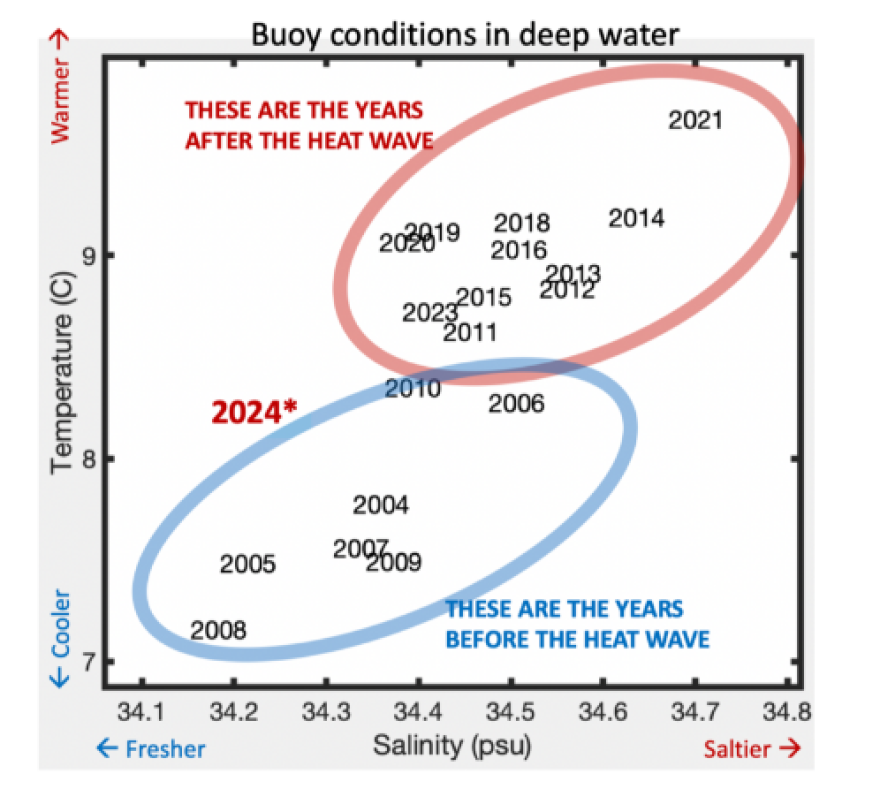About a dozen years ago, the Gulf of Maine experienced an ocean heatwave unlike any other.
Today, scientists are puzzling over new data that suggest the Gulf may be experiencing another kind of climate shock.
Data collected from buoys placed in the Gulf of Maine show that over the last six months, deep water temperatures are noticeably lower than the long-term average.
"It's not just cold in the deep waters right now, it's really cold. And it's fresher, it's really fresher than it's been," said Nick Record, a senior scientist with Bigelow Laboratory. "These are very unusual conditions, so I think there's a lot that we can learn by watching how the year unfolds."
The Gulf of Maine is still one of the fastest warming oceans on the planet, Record said. The ocean heatwave that hit the Gulf of Maine back in 2012 served as a prime example of the kind of surface temperature warming that much of the Atlantic has been experiencing.
But climate change creates more unpredictable conditions, and Record said the Gulf may be experiencing another kind of climate shock, similar to a late season frost.

"In some ways if we're just expecting long term warming, we could be surprised when, even temporarily, we get these weird reversals to a cold situation. The more we can condition ourselves to think about surprises, what they might mean for us, the more we can be proactive and more be adaptive," Record said.
It's not clear how long this pattern will hold, Record said. Because colder water makes for prime feeding habitat for critically endangered North Atlantic right whales, Record said he'll watch for whether right whales return to the Gulf of Maine in larger numbers this summer than they have in recent years.
Colder deep water may also change conditions for the lobster population. Deep water temperatures affect the timing of lobster molts, the presence of shell disease and other population impacts, Record said.



